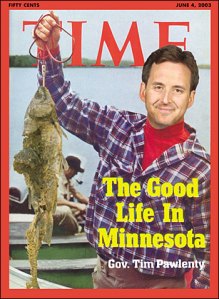Is It a New Poison?
Feel free to disagree with me, but in my opinion the North Carolina Senatorial campaign between Kay Hagan and Elizabeth Dole has brought out the worst in both politics and religious discourse in the United States. Religion has been used as a sword against The Other by one of the major parties. Since this is a nominally non-partisan blog I won’t say who is the guilty party.
In his discussing the presidential race, fmr Secretary of State Colin Powell endorsed Barack Obama and one of his major concerns was the way that the Republican party was using religion to divide the country between “Pro-America” and “Anti-America.” Michele Bachmann’s comments on Hardball about both Barack Obama and a plea for the media to expose the “Anti-America” elements in the House of Representatives were especially upsetting to him.
More importantly, he mentioned the ongoing rumor which insinuates that Barack Obama is a Muslim and not a Christian. He not only pointed out that Obama is a Christian, but then he made an even more important point. While the denials that Obama is a Muslim and is instead a Christian are important as far as getting the facts straight, the more important point is that it should not matter.
If Obama were a Muslim, his qualificatons for leadership would not change. Anti-Islamic bigotry should not be used against politicians. From the transcripts:
I feel strongly about this particular point because of a picture I saw in a magazine. It was a photo essay about troops who are serving in Iraq and Afghanistan. And one picture at the tail end of this photo essay was of a mother in Arlington Cemetery, and she had her head on the headstone of her son’s grave. And as the picture focused in, you could see the writing on the headstone. And it gave his awards–Purple Heart, Bronze Star–showed that he died in Iraq, gave his date of birth, date of death. He was 20 years old. And then, at the very top of the headstone, it didn’t have a Christian cross, it didn’t have the Star of David, it had crescent and a star of the Islamic faith. And his name was Kareem Rashad Sultan Khan, and he was an American. He was born in New Jersey. He was 14 years old at the time of 9/11, and he waited until he can go serve his country, and he gave his life. Now, we have got to stop polarizing ourself in this way. And John McCain is as nondiscriminatory as anyone I know. But I’m troubled about the fact that, within the party, we have these kinds of expressions.
I am troubled at how religion has been used to divide Americans. I don’t know if there were ever periods in our history when we weren’t facing some sort of religious dvide, but it seems to have been accentuated in this race because of a candidate whose middle name is “Hussein.”
This is not the first time that a candidate has been smeared because of his religion. Alfred Smith was the 1928 Democratic Party nomnee, but was often cast as being more beholden to the Pope than to the US Constitution. John Kennedy ran as a candidate in 1960, and the anti-Catholic bigotry once again reared its ugly head. Kennedy addressed the situation with a speech that really should be used as a template when discussing a candidate’s religious beliefs:
Finally, I believe in an America where religious intolerance will someday end–where all men and all churches are treated as equal–where every man has the same right to attend or not attend the church of his choice–where there is no Catholic vote, no anti-Catholic vote, no bloc voting of any kind–and where Catholics, Protestants and Jews, at both the lay and pastoral level, will refrain from those attitudes of disdain and division which have so often marred their works in the past, and promote instead the American ideal of brotherhood.
I really want to be clear as an atheist that while I have serious disagreements with the role that religion should play in society, I have no qualms against voting for somebody whose religious views differ from mine if I find that the person in question has a poltical view that I share. I vote for Christians in elections, even knowing their beliefs. In the 2006 mayoral election, I even voted for a Conservative Christian Republican. I practice what I am preaching here.
One more point before I get to my conclusion and open the topic for comments. This is not a new phenomena, nor was it new in the 20th century. Ed Darrell at Millard Fillmore’s Bathtub (an excellent blog whose writer is interested in correcting misunderstood versions of American History) refers us back to the 1800 presidential campaign. John Adams, a defender of religious liberty, engaged with the assistance of Alexander Hamilton in trying to smear Thomas Jefferson as an atheist. Hamilton convinced editors of newspapers to publish articles and editorials claiming that if elected, Jefferson would send the Army to confiscate Bibles:
One might recall Dumas Malone’s description of the election of 1800, between John Adams and Thomas Jefferson. Jefferson thought it beneath his dignity, and not part of American politics, to discuss a candidate’s religious faith. Alexander Hamilton, on behalf of Adams, led a campaign of calumny in newspapers throughout the U.S. saying that because Jefferson was atheist, as president he’d send the army to confiscate Bibles. Jefferson refused to respond. Malone notes that on election day, fully half of all American voters were convinced Jefferson was atheist.
They voted for Jefferson anyway, rather than stick with the failed policies of Adams. There’s a lesson in there somewhere.
It’s not new, you see. It’s just much more effective thanks to the internet and to 24-hour cable. Karl Rove has mastered the technique of getting the news media outlets to “raise the question” without stating a position. The question-raising is often enough to shift opinion against a candidate. The Washington Post featured an article on how it is possible to convince the populace that a candidate’s religion makes his/her patriotism suspect, even if the candidate is not a member of that religion.
Kay Hagan’s response to Elizabeth Dole’s slimy campaign ads involved the disclaimer that she is a Christian. Many atheists who had donated money to support her were disappointed that she had not used Colin Powell’s example to say that “While I am not an atheist, so what if I were?”
If I ever run for office, atheism will not be my central plank. But since I am way out of the closet, there will be no way to hide that fact. And I would not run from it, either. If it were to become an issue, I would remind voters of what Kennedy and Powell said. I would also remind them of the way that the voters responded to the charges of Jefferson’s atheism in 1800.



